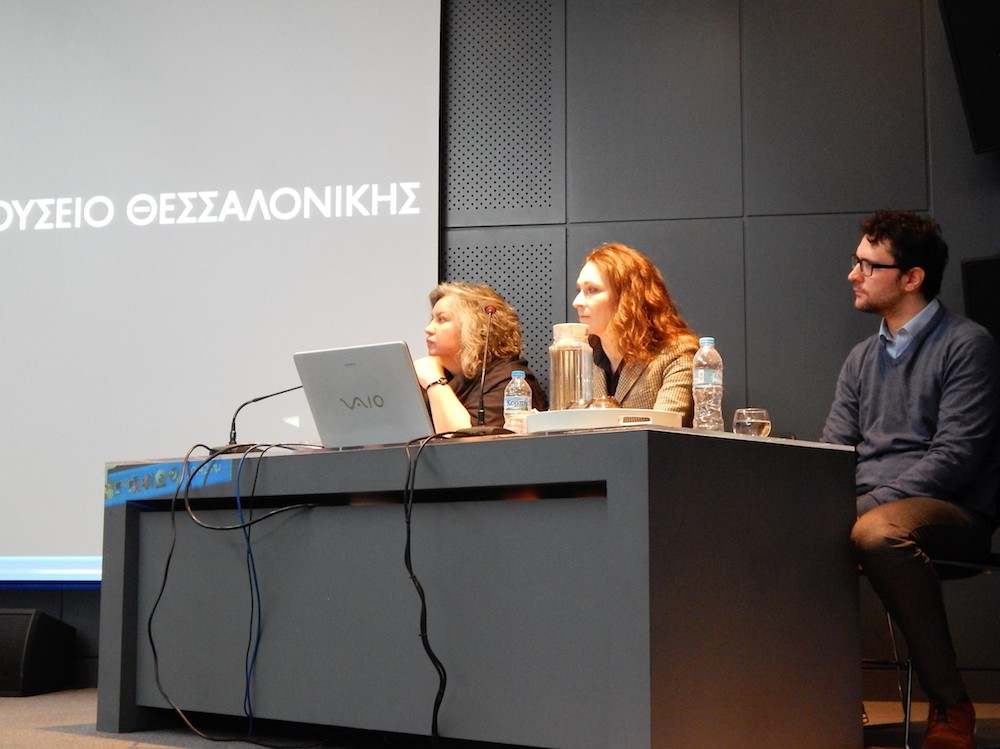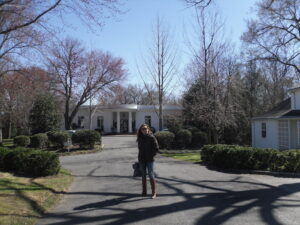Linguistics and Aristotle: From Thessaloniki to the CHS
It all started years ago when I was studying classics at Aristotle University, guided by illuminated classicists with remarkable linguistic backgrounds (such as P. Kotzia) and, at the same time, surrounded by progressive linguists with a high-level of classical education (such as A.-F. Christidis). Thus, I was fortunate enough to delve into ancient philosophical approaches to language by receiving valuable feedback from both classics and linguistics up to my PhD.
However, I was even more fortunate as a post-doctorate applicant of the Center for Hellenic Studies, in its first official collaboration with Aristotle University of Thessaloniki, when my research proposal on “Aristotle as a name-giver from a cognitive linguistic aspect” was embraced by the CHS a little more than a year ago. It thus became possible for me to express my point of view regarding classical research that modern interdisciplinary methods can provide classicists with new and inspiring tools when approaching ancient texts: classicists often complain about not having enough texts and contexts in order to reconstruct ancient theories, but rarely do we consider the possibility of exploiting the apparatus of another contemporary discipline in our research.
As cognitive linguistics combines cognitive sciences with linguistics and concentrates on what happens in the human mind during the production and reception of language, it is worth examining ancient linguistic theories and practices based upon the specific theoretical background, where possible, especially given that it is rather a set of approaches, an enterprise, than a theory with strictly prescribed methods and principles. Aristotle in particular, a thinker whose theoretical linguistic views but also name-giving practices have had an enormous impact on the philosophy of language and on the history of philosophical vocabulary, can be considered to convey a treatment of language which later constituted the basis of what was called a “cognitive linguistic framework”.

Being hosted by the CHS gives the opportunity to researchers from small countries like Greece to articulate their positions and be heard on an international level. It has therefore been an honor and a privilege for me, even working from Thessaloniki, since the electronic access to all the digital sources of Harvard made it possible to access the latest classical and linguistic material, as if I was present at the library in Washington! Even more important was the feedback from the professors, the staff and the other fellows whom I had the pleasure of meeting in Washington, where I was for 10 days, to get in touch with the people of the CHS and also to present the results of this research.
The experience of that visit was unique, because I had the chance to complete my long-distance fellowship with getting to know the human side of the host institution, a side which was as great as the academic one…
Maria Chriti
 Maria Chriti was born in Thessaloniki, she got her BA, MA and PhD at Aristotle University of Thessaloniki. Her PhD title (2012) was “The Linguistic Approaches of Aristotle’s Neoplatonic Commentators” (supervised by P. Kotzia (†)). She has been working as a researcher at the Centre for the Greek Language since 1999, participates in the compilation of the “Kriaras Dictionary of Medieval Vernacular Greek” and teaches ancient Greek philosophy (Plato-Aristotle) at the Open University of Cyprus. She also is the Vice-president of the International Association “ETYGRAM” (Etymologies grecques antiques et médiévales). Her main research interests are ancient linguistics, philosophy of language, ancient logic, Neoplatonists on language and mind. Research connected to her CHS fellowship appears at FirstDrafts@Classics@. Among her edited/published works are: Α History of Ancient Greek: From the Βeginnings to Late Antiquity, in collaboration with A.-F. Christidis & M. Arapopoulou (Cambridge: CUP, 2007), “Ancient Philosophers on Language” (in collaboration with P. Kotzia), in The Encyclopedia of Ancient Greek Language and Linguistics (eds. G. Giannakis, V. Bubenik, E. Crespo, Ch. Golston, A. Lianeri, S. Luraghi, St. Matthaios, 2014, vol. I, 124-133), “Neoplatonic Commentators on Aristotle: The ‘Arbitrariness’ of the Linguistic Sign”, (in Ancient Scholarship and Grammar. Archetypes, Concepts and Contexts, eds. St. Matthaios, F. Montanari, A. Rengakos, 499-514. Trends in Classics 8. Berlin &ΝY: De Gruyter, 2011).
Maria Chriti was born in Thessaloniki, she got her BA, MA and PhD at Aristotle University of Thessaloniki. Her PhD title (2012) was “The Linguistic Approaches of Aristotle’s Neoplatonic Commentators” (supervised by P. Kotzia (†)). She has been working as a researcher at the Centre for the Greek Language since 1999, participates in the compilation of the “Kriaras Dictionary of Medieval Vernacular Greek” and teaches ancient Greek philosophy (Plato-Aristotle) at the Open University of Cyprus. She also is the Vice-president of the International Association “ETYGRAM” (Etymologies grecques antiques et médiévales). Her main research interests are ancient linguistics, philosophy of language, ancient logic, Neoplatonists on language and mind. Research connected to her CHS fellowship appears at FirstDrafts@Classics@. Among her edited/published works are: Α History of Ancient Greek: From the Βeginnings to Late Antiquity, in collaboration with A.-F. Christidis & M. Arapopoulou (Cambridge: CUP, 2007), “Ancient Philosophers on Language” (in collaboration with P. Kotzia), in The Encyclopedia of Ancient Greek Language and Linguistics (eds. G. Giannakis, V. Bubenik, E. Crespo, Ch. Golston, A. Lianeri, S. Luraghi, St. Matthaios, 2014, vol. I, 124-133), “Neoplatonic Commentators on Aristotle: The ‘Arbitrariness’ of the Linguistic Sign”, (in Ancient Scholarship and Grammar. Archetypes, Concepts and Contexts, eds. St. Matthaios, F. Montanari, A. Rengakos, 499-514. Trends in Classics 8. Berlin &ΝY: De Gruyter, 2011).
